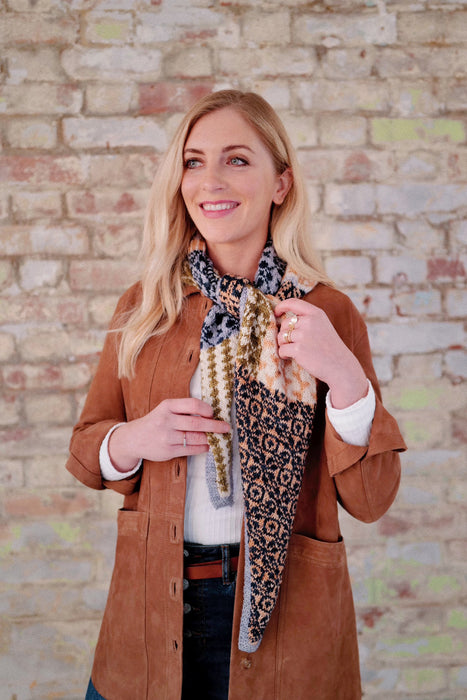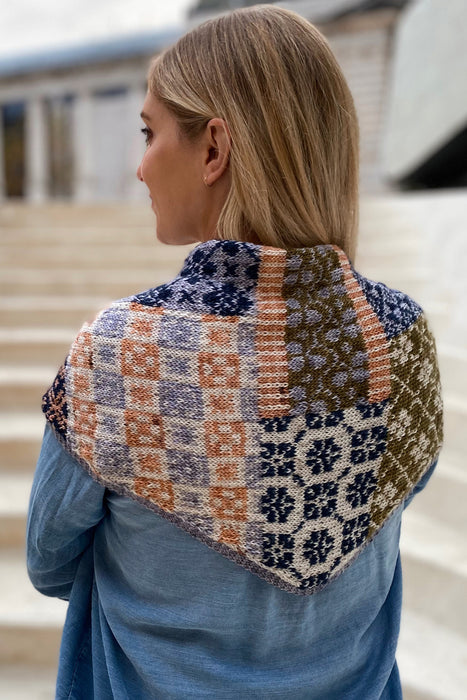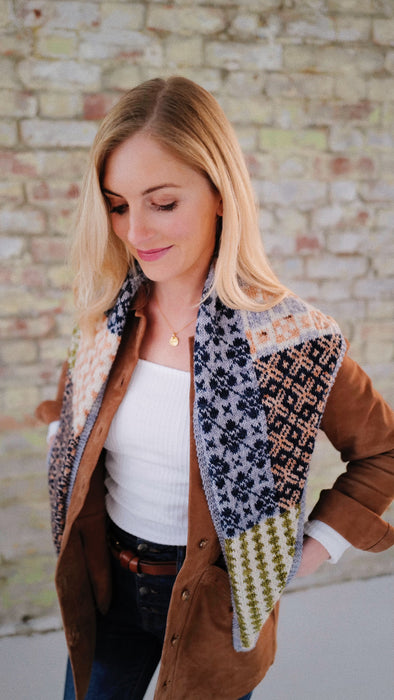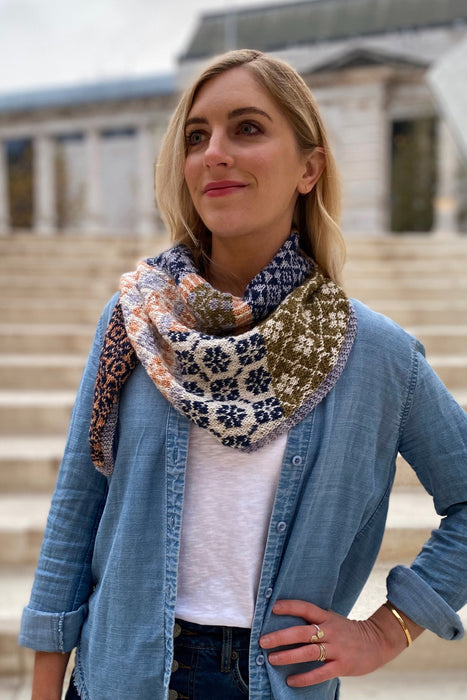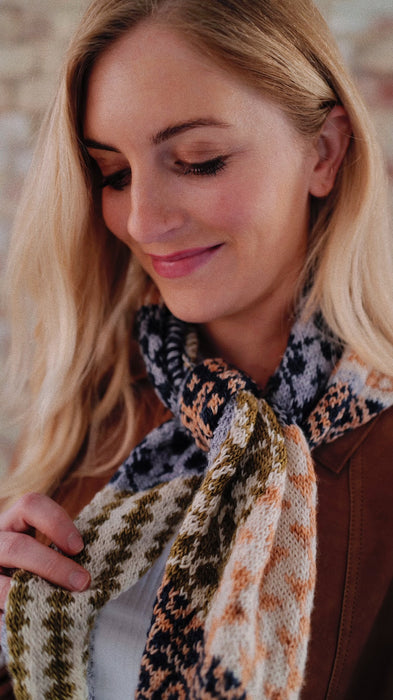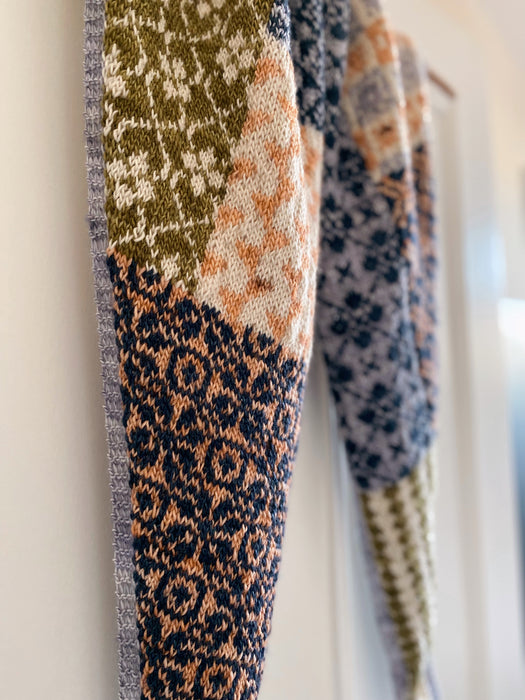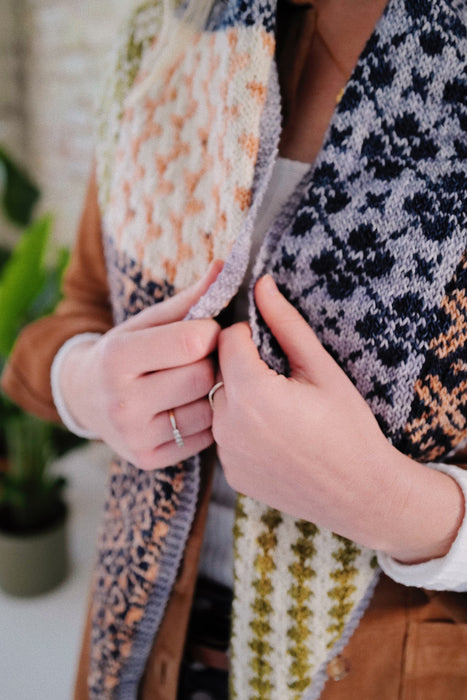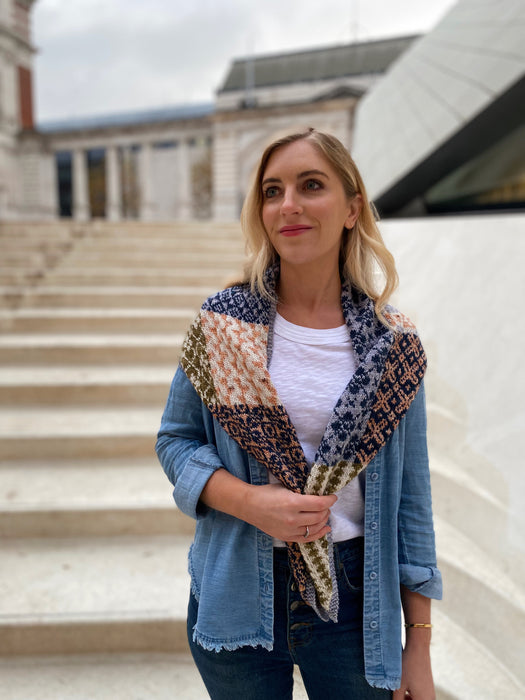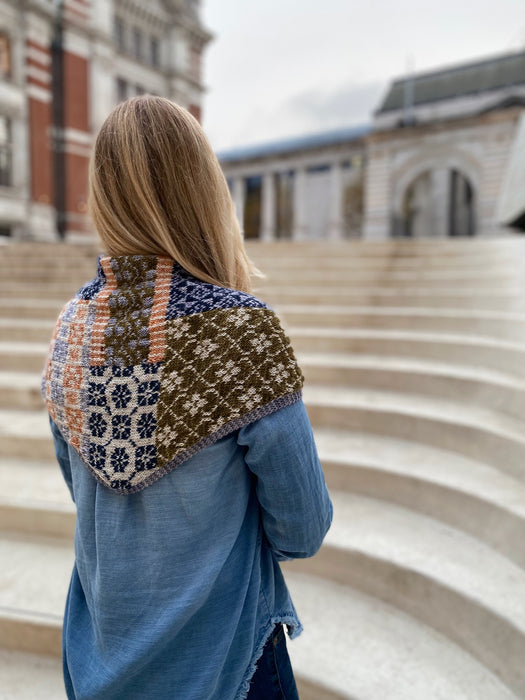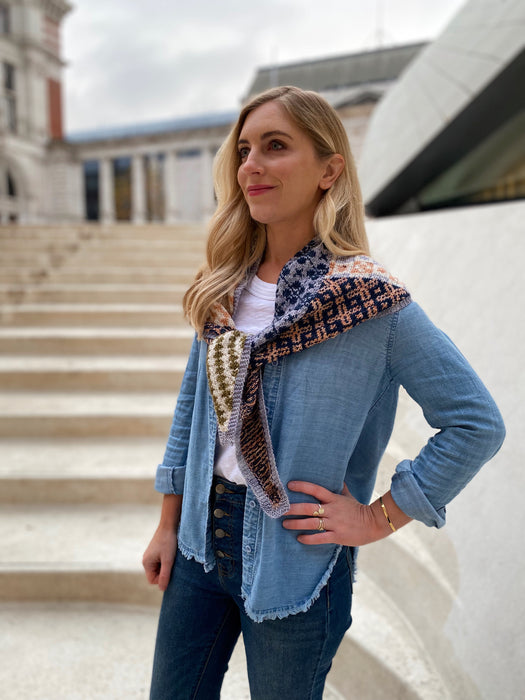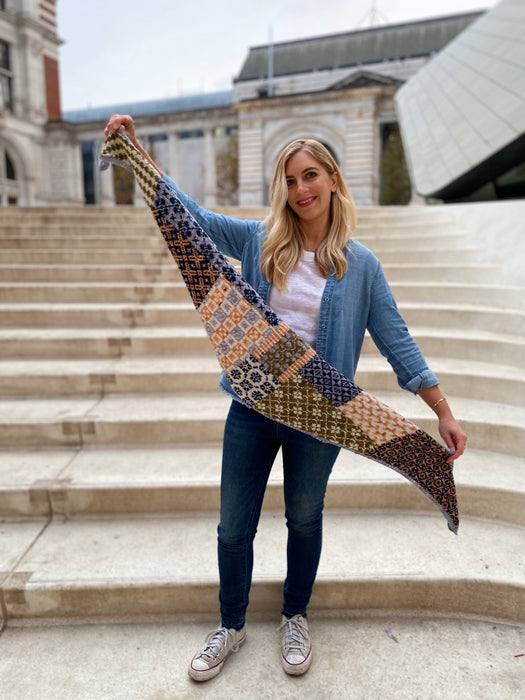Scout Mini Shawl: Korean
This is the Korean translation of the Scout Shawl pattern.
A sister design to the original Scout Shawl, this slightly modified shape shares the same intricate, pattern-filled look inspired by the pieced-together aesthetic of vintage quilts. A dream project for colourwork lovers, Scout Mini’s patchwork effect is achieved by mixing stranded and intarsia colourwork knitting throughout. For this version, I imagined diving into a trove of patterned fabrics that had been collected via travel filled adventures. The collection is collaged together in a freeform manner, mixing memories into a patchwork composition. Knitted sideways from tip-to-tip, this petite triangular shawl can be styled in numerous ways.
Yarn
Madelinetosh Tosh Merino Light
100% Superwash Merino wool
Fingering Weight
384m / 420yds per 100g / 3.5oz skein
Sample used:
Colours 1-5 (C1-C5)
C1 – 180m / 195yds of “Moonstone”
C2 – 100m / 110yds of “Chai Complexity”
C3 – 125m / 135yds of “Deep”
C4 – 150m / 165yds of “Paper”
C5 – 75m / 80yds of “Oak”
Please note there is a 15% buffer added to these yarn amounts.
Advice on choosing colours:
• The most important thing is to choose five colours that you love together!
• I like to include a neutral as one of the colours, as it makes the other colours sing.
• Don’t worry or try to control the colour pairings too much - the concept of the patchwork aesthetic is that some pattern blocks will be high contrast, and some will be low contrast. The beauty of this is that you can let the colours unfold in an unexpected way.
Use the schematic to further check how the colours will be paired together.
Tools & Materials
• 3.5mm / US 4, 61cm / 24” or 81cm / 32” circular needle
• Tapestry needle for weaving in ends
Gauge
28 sts and 30 rows = 10cm / 4” in Stranded pattern after blocking.
I suggest using Chart 4 to knit a swatch 13 x 13 cm / 5 x 5” or larger to determine your gauge.
Always use a needle size that achieves the correct gauge.
Construction Notes
• Shawl is worked side-to-side, starting at one tip, and increasing out to the widest point, then decreasing back to the other tip.
• Shaping on the triangular tips takes place every 2 rows, along the left edge only.

